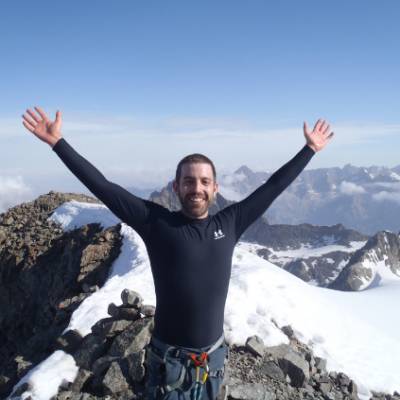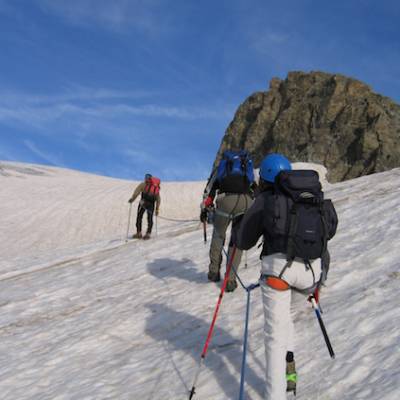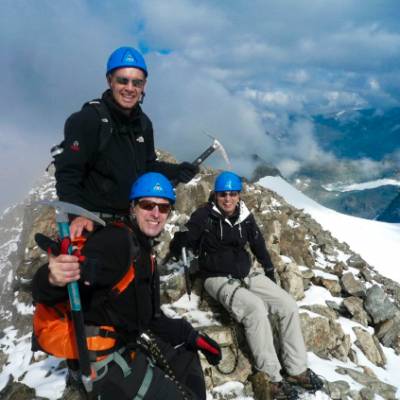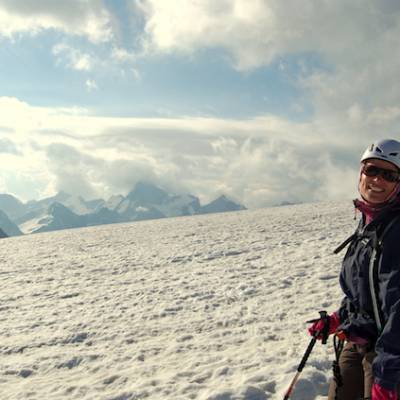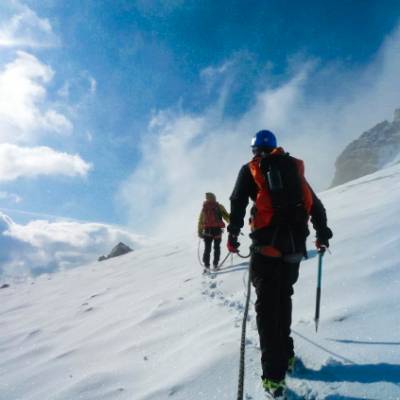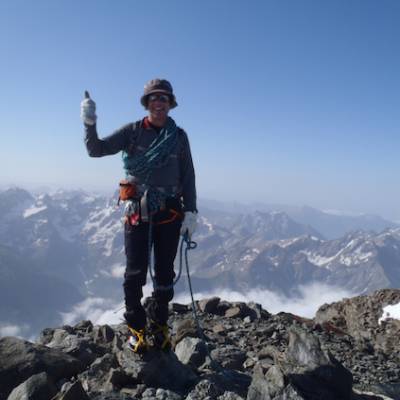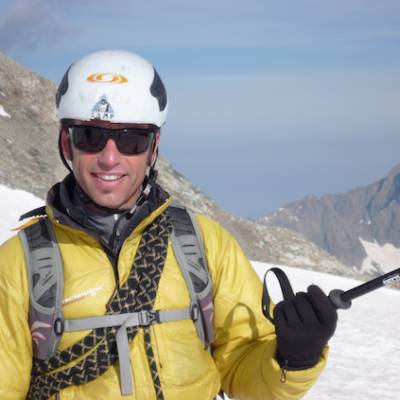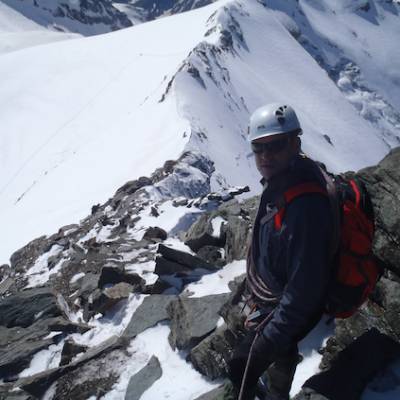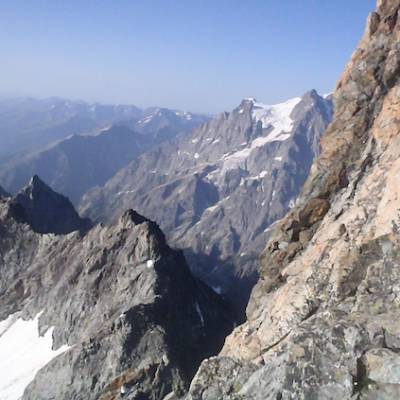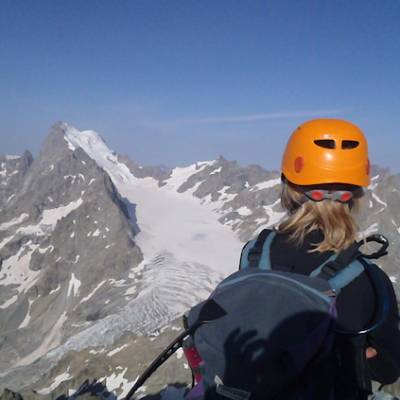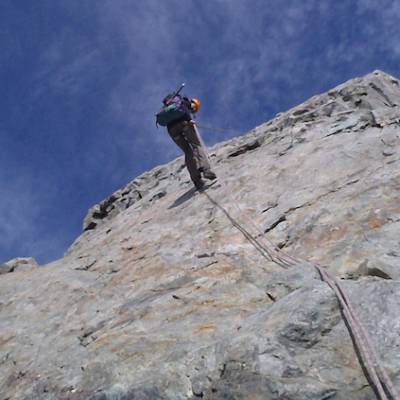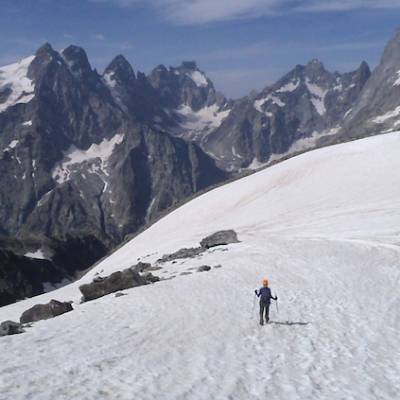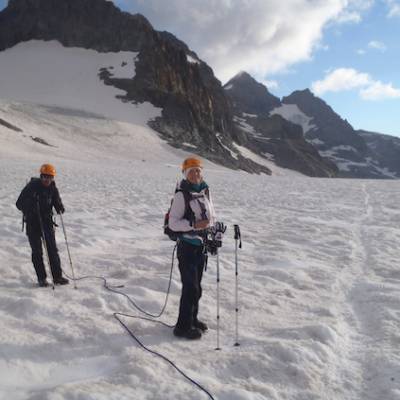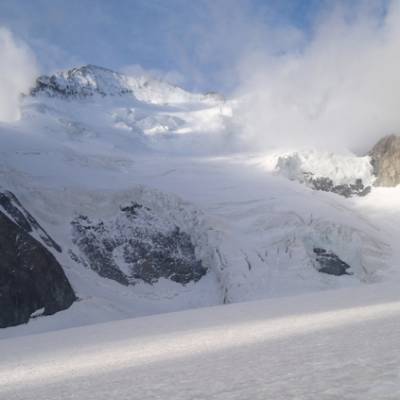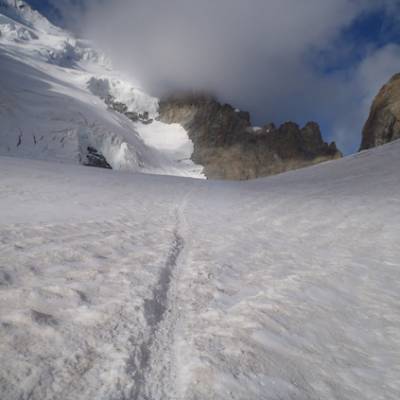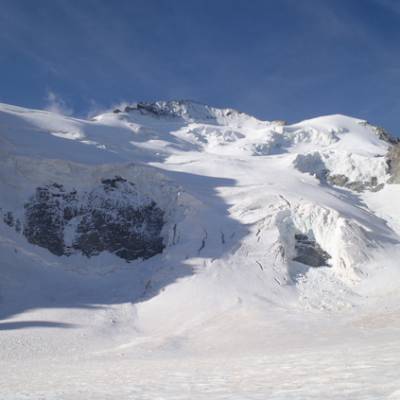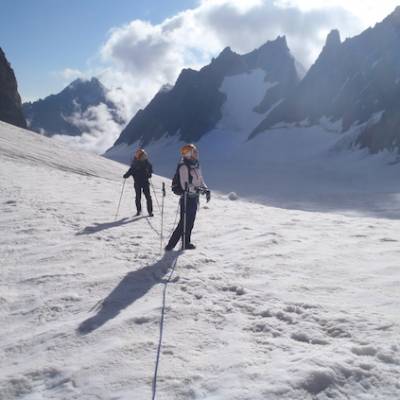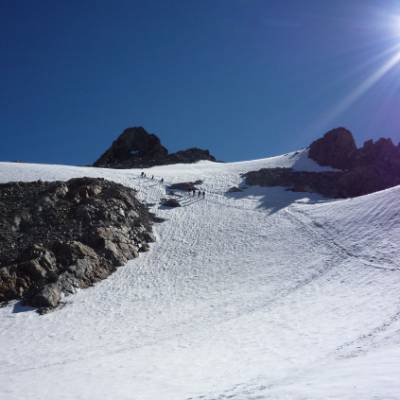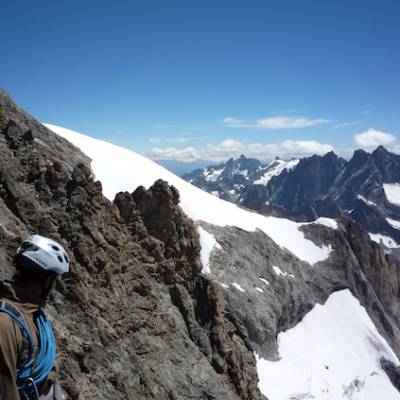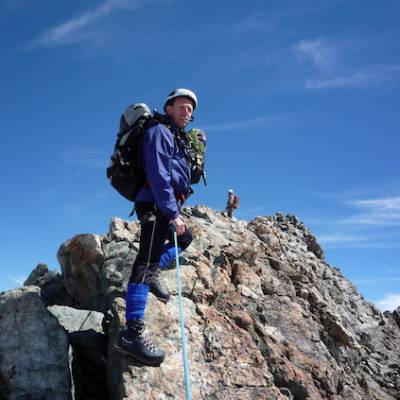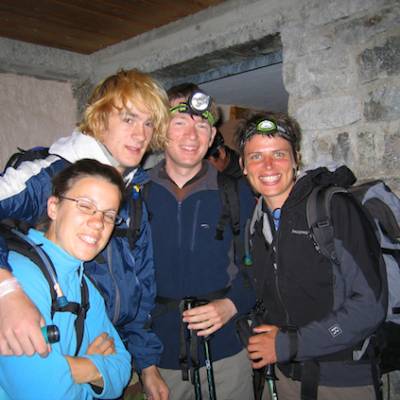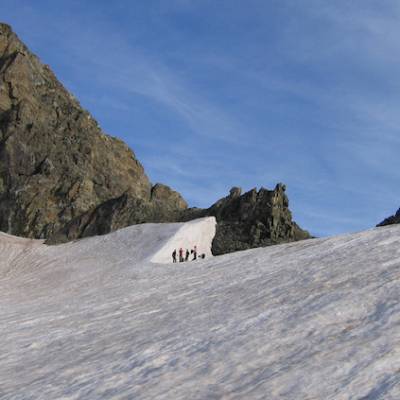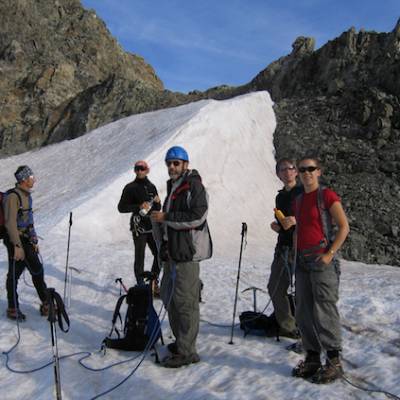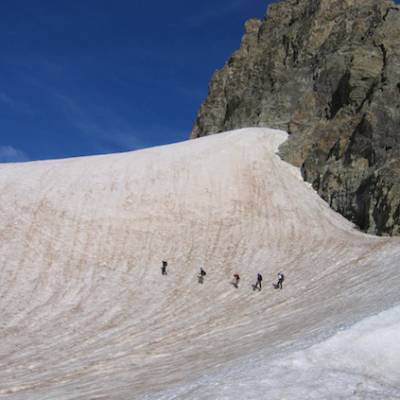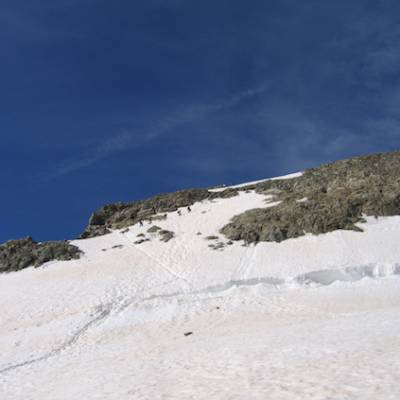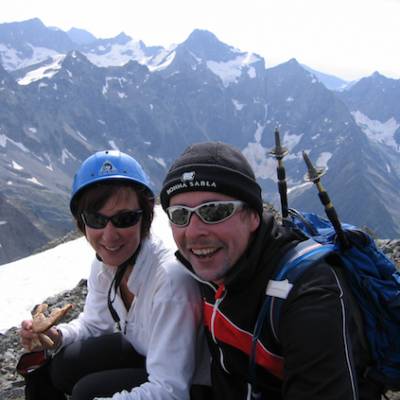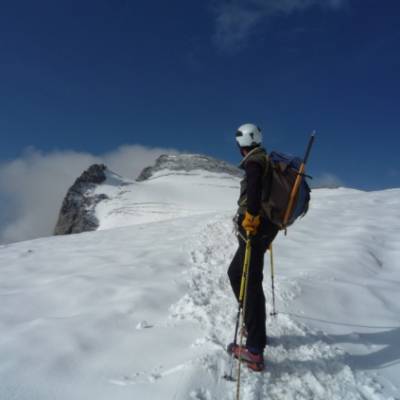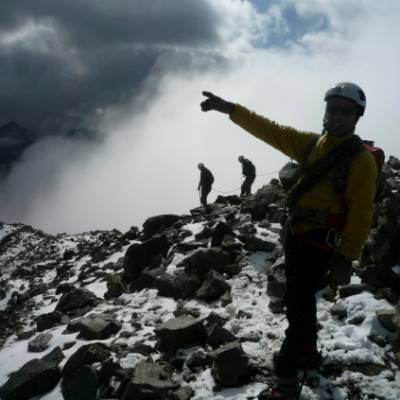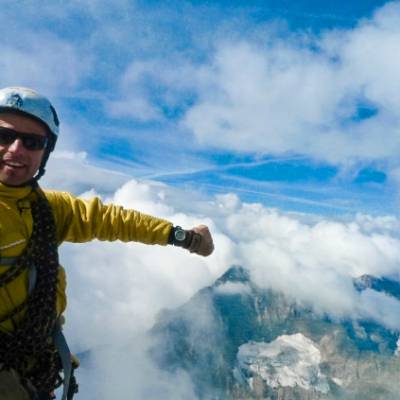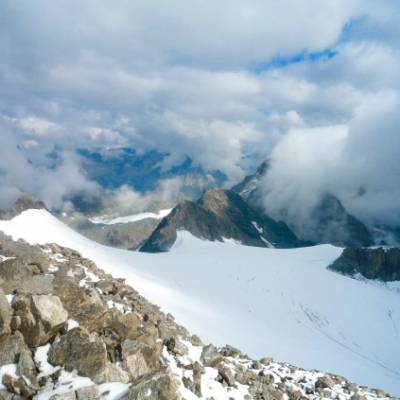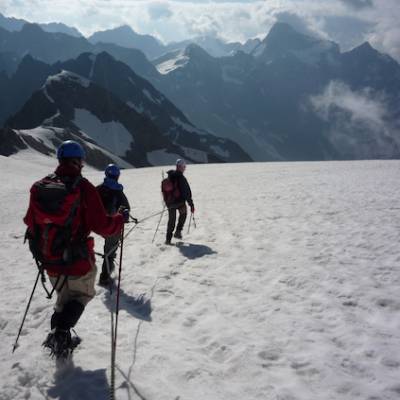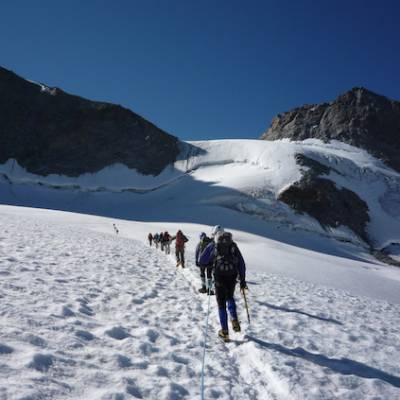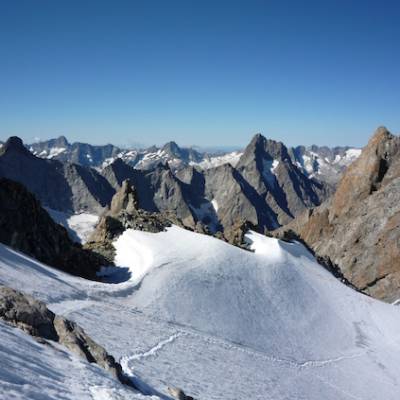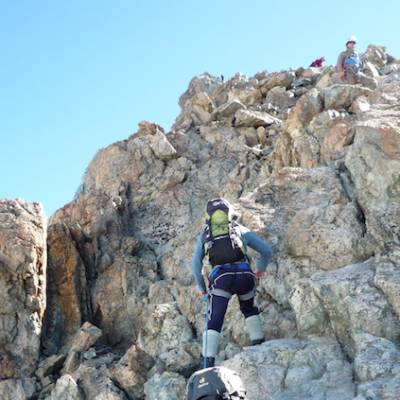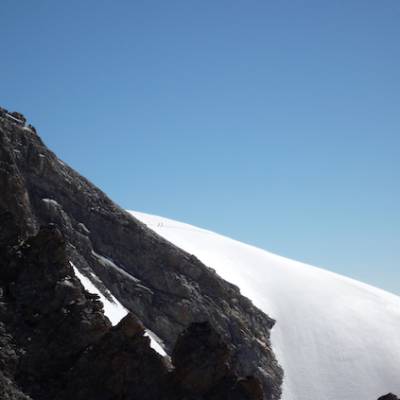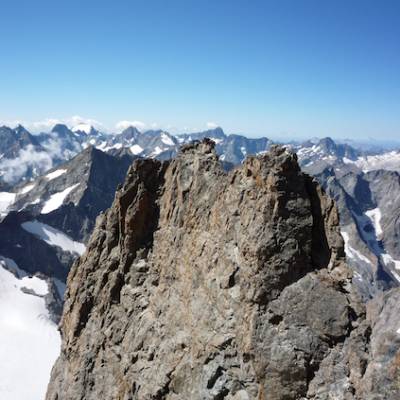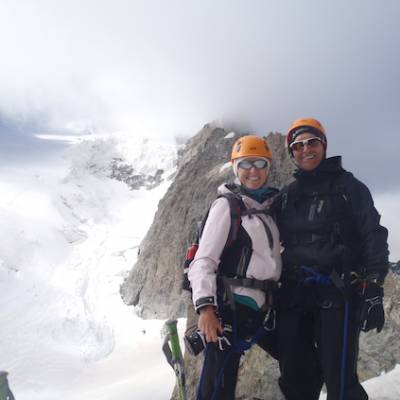Climb a famous mountain summit or get off the beaten track and experience alpinism as it used to be!
If you love the mountains, like climbing and walking and are reasonably fit, then you are made for mountaineering and alpinism.
What is Mountaineering and Alpinism?
Mountaineering officially became a sport in 1492 with the ascent of Mont Aiguille in the French Alps. This was the first recorded time a mountain was climbed for the sole purpose of reaching it's summit!
Since then the sport has evolved somewhat and hobnail boots have been replaced with modern equipment and climbing techniques making the mountains more and more accessible to all.
Mountaineering comes in various forms from 'relatively' easy trekking summits through to very technical climbs like the famous north face of the Eiger.
In between there is something for everyone so whether you want to cross a glacier avoiding the crevasses, do a technical rock climb, traverse an exposed ridge, just walk as high as you can or a mixture of all there is a mountain waiting for you to climb!
Best Time of Year for Mountaineering:
Traditional mountaineering season is the summer, when the harsh winter weather is over and the snow has receded to just the highest altitudes. This is also when the majority of refuges open which provide a welcome bed for the night and food for tired mountaineers on their way up or down their chosen mountain. Most high mountain summits above 3000m take two or more days to get to.
Choose from a range of mountaineering trips, do mountaineering as part of a multi activity holiday or tailor make your own. There is something for everyone from beginners to gnarly mountaineers!
Safety:
The hazards of the high mountian environment are very real with avalanches, rock fall, crevasses, cold and severe weather to name just a few!
A thorough knowledge of mountaineering safety techniques, an understanding of the the behaviour of snow, rock and glaciers and experience of the mountains are vital for safe mountaineering.
It isn't recommended to go into the high mountains without a high mountain guide unless you are a competent alpinist or mountaineer. Going with a guide doesn't exempt you from the dangers of the mountains, but their experience, technical skils and knowledge are a significant advantage even for experienced mountaineers!
All our guides are fully qualified and experienced UIAGM high mountain guides from the area. They will make your safety their priority as well as making sure you make the most of the area and enjoy the mountains.
Mountaineering Holidays:
We can tailor make any mountaineering or alpinism holiday for you in the Alps, where we have our main destination base as well as the Himalayas of Nepal where we have another destination base. We tend to stay away from the real honeypot 'mountaineering factory' summits like Mont Blanc and prefer to offer mountaineering experiences off the beaten track so you get an authentic mountaineering experience without having to share it with hundreds of other people.
We also have a range of ready made trips you can easily book onto. If you are new to mountaineering and want your first experience climbing a high mountain, have a look at our introductory mountaineering week in the Ecrins. Or you can even try a one off beginner alpinism or first peak experience as part of our fully customisable summer multi activity holiday.
For summit baggers with some mountaineering experience, the Barre des Ecrins or the Dome Des Ecrins (slightly easier) summit trips are very popular.
Mountaineering Grades:
There are usually several different routes to climb a mountain and they are all graded by difficulty ranging from 'Facile' to 'Extrement Difficile'
F: Facile/easy. Rock scrambling or easy snow slopes; some glacier travel; often climbed ropeless except on glaciers.
PD: Peu Difficile/a little difficult. Some technical climbing and complicated glaciers.
AD: Assez Difficile/fairly hard. Steep climbing or long snow/ice slopes above 50%; for experienced alpine climbers only.
D: Difficile/difficult. Sustained hard rock and/or ice or snow; fairly serious stuff.
TD: Tres Difficile/very difficult. Long, serious, remote, and highly technical.
ED: Extremement Difficile/extremely difficult. The most serious climbs with the most continuous difficulties. Increasing levels of difficulty.
FAQ's
Do you need previous experience to participate in a mountaineering trip?
Some of our trips like the Barre des Ecrins trip require previous experience and knowledge alpinism but others are more accessible for beginners, like our mountaineering week in the Ecrins. We can also tailor make mountaineering trips for any level so get in touch with your request.
Where are your mountaineering trips based?
The majority of our mountaineering trips are based in the French Alps but we avoid the real tourist traps like Mont Blanc and prefer to use the lesser known summits for a higher quality all round experience.
Who are your guides for mountaineering trips?
For all our mountaineering and alpinism trips we use fully qualified UIAGM high mountain guides with local knowledge and experience. We don't bring in foreign guides as we prefer to plough our tourist revenue back into the local economy and believe that local knowledge is paramount to a high quality and safe experience.

